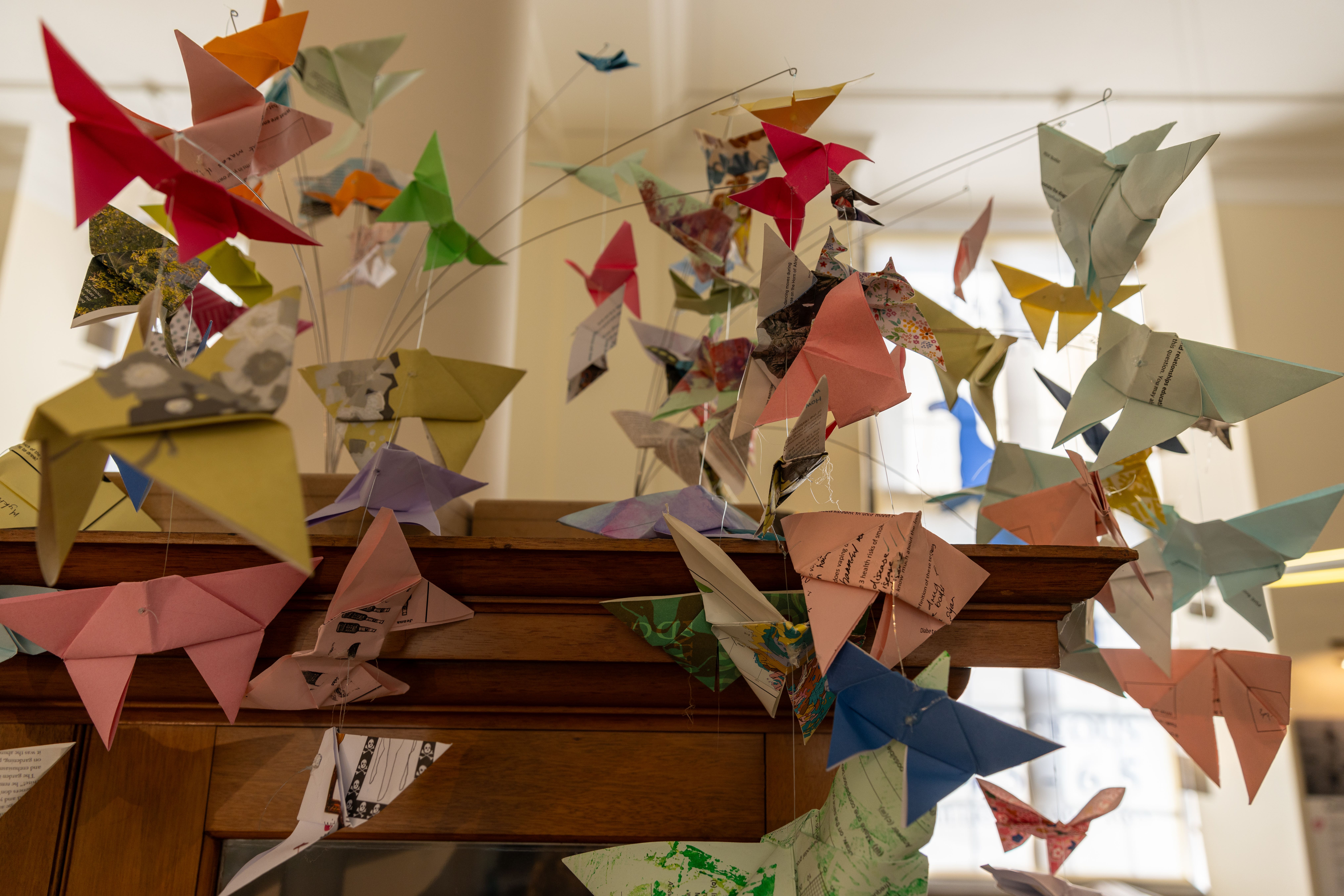Youngsters hope Butterfly Effect art will spark conversations on climate crisis
The inspiration for the installation comes after pupils learned that butterflies act as an early warning sign of environmental changes.

Your support helps us to tell the story
From reproductive rights to climate change to Big Tech, The Independent is on the ground when the story is developing. Whether it's investigating the financials of Elon Musk's pro-Trump PAC or producing our latest documentary, 'The A Word', which shines a light on the American women fighting for reproductive rights, we know how important it is to parse out the facts from the messaging.
At such a critical moment in US history, we need reporters on the ground. Your donation allows us to keep sending journalists to speak to both sides of the story.
The Independent is trusted by Americans across the entire political spectrum. And unlike many other quality news outlets, we choose not to lock Americans out of our reporting and analysis with paywalls. We believe quality journalism should be available to everyone, paid for by those who can afford it.
Your support makes all the difference.Schoolchildren have helped to craft hundreds of paper butterflies that are on display around a museum in a bid to spark conversation about the climate crisis.
Pupils were inspired to create the art installation, called The Butterfly Effect, after learning that butterflies act as an early warning sign of changes in the environment.
The butterflies, at Cambridge University’s Sedgwick Museum of Earth Sciences, are on show alongside cardboard protest banners.
One of them reads “This is our planet let’s fight 4 it”, while another – held by a 13-foot-tall iguanodon dinosaur skeleton at the museum – says “Life is in the balance”.
Artist Hilary Cox Condron worked with children, aged from 11 to 16, from Parkside Community College in Cambridge on the project.
Students attended after-school workshops in their free time as part of the project, which began last November, including the history of collecting climate data and how fossil evidence can show changing climates.
Nicola Skipper, Sedgwick Museum education co-ordinator who led the project, said: “It’s been a real joy working with the students from Parkside and they’ve created some striking artistry for visitors to experience amongst our collection.
“The Sedgwick Museum has rocks and fossils that show over 1,700 million years of global climate change and it’s vital young people engage with the climate crisis.
“This programme was created to connect the upcoming generation with our world-leading climate scientists and to give the students a space and voice within the museum.
“It’s been wonderful to see them respond to it so enthusiastically and creatively.”
Dr Richard Fox, head of science at Butterfly Conservation, said: “Butterflies are indicators of a healthy natural environment and can indeed flag early warning signs of environmental issues.
“With half of Britain’s butterfly species already threatened or near threatened with extinction, it’s never been more important to understand how our insects are responding to the changing climate and take action to protect them so that they can keep informing us of the wider health of the environment.”
He urged people to take part in the charity’s annual citizen science project, the Big Butterfly Count, from July 12 to August 4.
“The data collected by people all across the UK gives us valuable insight into how our butterflies are faring, what’s happening in nature, and how we can help to protect them,” said Dr Fox.
“With climate change here to stay, we need people to take part more than ever this year.”